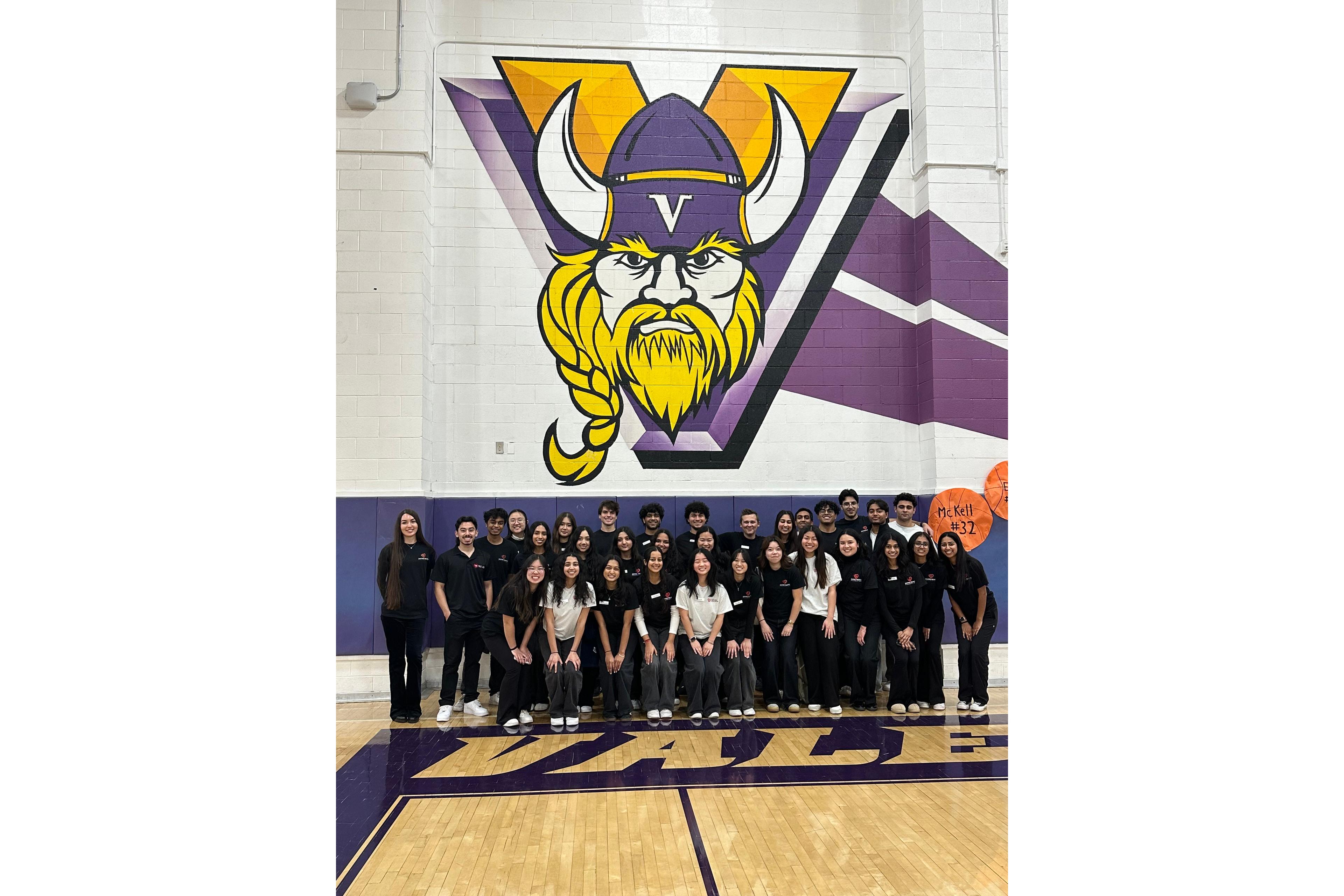Saving Hearts’ UCLA chapter hosts free screening event for underserved community
Cardiologists and students from the UCLA chapter of the Saving Hearts Foundation convened at Valencia High School to provide free heart screenings. (Courtesy of Saving Hearts Foundation at UCLA)
By Prannay Veerabahu
Feb. 15, 2025 11:47 p.m.
Cardiologists and students from UCLA convened at Valencia High School to provide free heart screenings Feb. 1.
The Saving Hearts Foundation at UCLA was founded in 2014 after three UCLA students lost a family friend to a sudden cardiac arrest event. At its event at Valencia High School, the foundation provided 12- to 35-year-olds with free electrocardiogram – or EKG – and echocardiogram screenings.
As attendees waited for the cardiologists to review their echocardiogram results, they were invited to attend CPR and first aid training events.
As part of the event, UCLA students also engaged with patients on a clinical level through EKG wire positioning, taking vitals and shadowing the reviewing cardiologists.
“Saving Hearts’ mission is to spread awareness while studying cardiac arrest through action, awareness and education,” said Jaipal Virdi, the UCLA chapter’s president.
Virdi, a fourth-year physiological science student, said cardiologists can use simple EKG procedures to identify heart irregularities and recommend follow-up appointments.
Saving Hearts hosts heart screening events at local high schools such as Valencia, he said. It also hosts “heart talks” – outreach events at high schools explaining the importance of being screened for heart abnormalities, Virdi added.
The causes of sudden cardiac arrests are not necessarily attributable to living an unhealthy lifestyle but can be caused by genetic underpinnings, said Sasha Gladkikh, the club’s external vice president.
“We offer these services across Southern California, primarily to underserved schools and underserved communities that usually don’t have access to these medical screenings,” said Gladkikh, a fourth-year computational and systems biology student.
After reaching out to new schools to set up a screening event, Saving Hearts must secure cardiologists, Ethernet access and gymnasium access, Virdi added.
“Yesterday before the screening, we were here till 11 p.m. getting all the tents set up, all the chairs, all the EKGs put together,” Virdi said. “We’ll do school assembly presentations talking about the issue to get students excited.”
Additionally, prior setup and coordination are required for the EKG system as well as multiple computers connected to a secure server, said Shail Patel, Saving Hearts’ co-technical director. Patel said he streamlines patient experiences by implementing a mini electronic record system that links records across registration, scans and checkout, ensuring cardiologists receive the necessary information.
“It’s a complex process that requires having our computers connected to an overlying server and making sure there is connectivity such that our patients are able to have their data secured in a HIPAA-compliant (Health Insurance Portability and Accountability Act) manner,” Patel said.
Isaac Vielma, a physician from Valencia, said he brought his son in for screening at the event after the latter experienced shortness of breath and chest pain while playing soccer.
“To get in to your pediatrician is hard enough, and then even to get a referral to a cardiologist is difficult,” Vielma said.
Free screenings such as the ones offered by Saving Hearts can be a more convenient and less demanding experience, Vielma said, adding that he thought attending the event was worth an hour of his time.
Terri Wheatley, a substitute teacher in the district, said she brought her son to be screened partly because she has a family history of heart-related health issues.
“Everyone’s very helpful. It was really quick. … Everyone seemed very knowledgeable and very helpful,” Wheatley said.
Andre Sanavi, executive director of the Saving Hearts Foundation, said the bulk of Saving Hearts’ volunteer base is undergraduates. Through their work, undergraduates are advocating for not just others but also themselves and their peers, added Sanavi, who works as a clinical research coordinator.
One of the benefits of having an undergraduate volunteer base, Sanavi said, is that volunteers are able to bring new perspectives in convincing people to get screened by talking on a peer-to-peer basis.
Henry Dehan, a first-year psychobiology student, said he volunteered at the event after being diagnosed late with an aortic condition in middle school. Dehan added that he believes having access to the free screenings Saving Hearts offers would have been helpful for him when he was younger but also for kids without proper health care.
“It takes a lot of work behind the scenes to provide these services for free, but this is something we take very seriously, because we never want to have to charge patients,” Gladkikh said.
